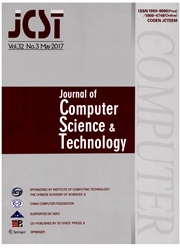

 中文摘要:
中文摘要:
一个开放源代码软件(OSS ) 生态系统指开发社区许多填写了的 OSS 软件工程并且开发者贡献这些工程。工程和开发者在一个生态系统共同演变。到把如此的 OSS 的健康进化作为生态系统,有吸引并且保留开发者的需要,特别地投射穿上主要影响的领导人和核心开发者工程和全部队。因此,弄明白影响开发者的因素碰巧演变为是重要的投射领导人和核心开发者。识别如此的因素,我们在地精上进行了案例研究生态系统。首先,我们收集了反映开发者的指示物贡献工程和工程的主观心甘情愿他们呆在在里面的环境。第二,我们基于地精计算了如此的指示物数据集。然后,当,我们由拿适合逻辑回归模型独立变量在消除最在同一直线上的,并且当,拿以后的产生指示物一个依赖者变量未来开发者角色(核心开发者或工程领导人) 。结果显示出如此的指示物的那部分(例如,总数一个开发者加入了的工程的数字) 主观心甘情愿和工程,环境显著地影响了开发者演变为核心开发者并且投射领导人的机会。与不同确认方法,我们的获得的模型在预言发展核心开发者上表演很好,导致稳定的预言性能(0.770, F 值) 。
 英文摘要:
英文摘要:
An open source software (OSS) ecosystem refers to an OSS development community composed of many software projects and developers contributing to these projects. The projects and developers co-evolve in an ecosystem. To keep healthy evolution of such OSS ecosystems, there is a need of attracting and retaining developers, particularly project leaders and core developers who have major impact on the project and the whole team. Therefore, it is important to figure out the factors that influence developers' chance to evolve into project leaders and core developers. To identify such factors, we conducted a case study on the GNOME ecosystem. First, we collected indicators reflecting developers' subjective willingness to contribute to the project and the project environment that they stay in. Second, we calculated such indicators based on the GNOME dataset. Then, we fitted logistic regression models by taking as independent variables the resulting indicators after eliminating the most collinear ones, and taking as a dependent variable the future developer role (the core developer or project leader). The results showed that part of such indicators (e.g., the total number of projects that a developer joined) of subjective willingness and project environment significantly influenced the developers' chance to evolve into core developers and project leaders. With different validation methods, our obtained model performs well on predicting developmental core developers, resulting in stable prediction performance (0.770, F-value).
 同期刊论文项目
同期刊论文项目
 同项目期刊论文
同项目期刊论文
 期刊信息
期刊信息
